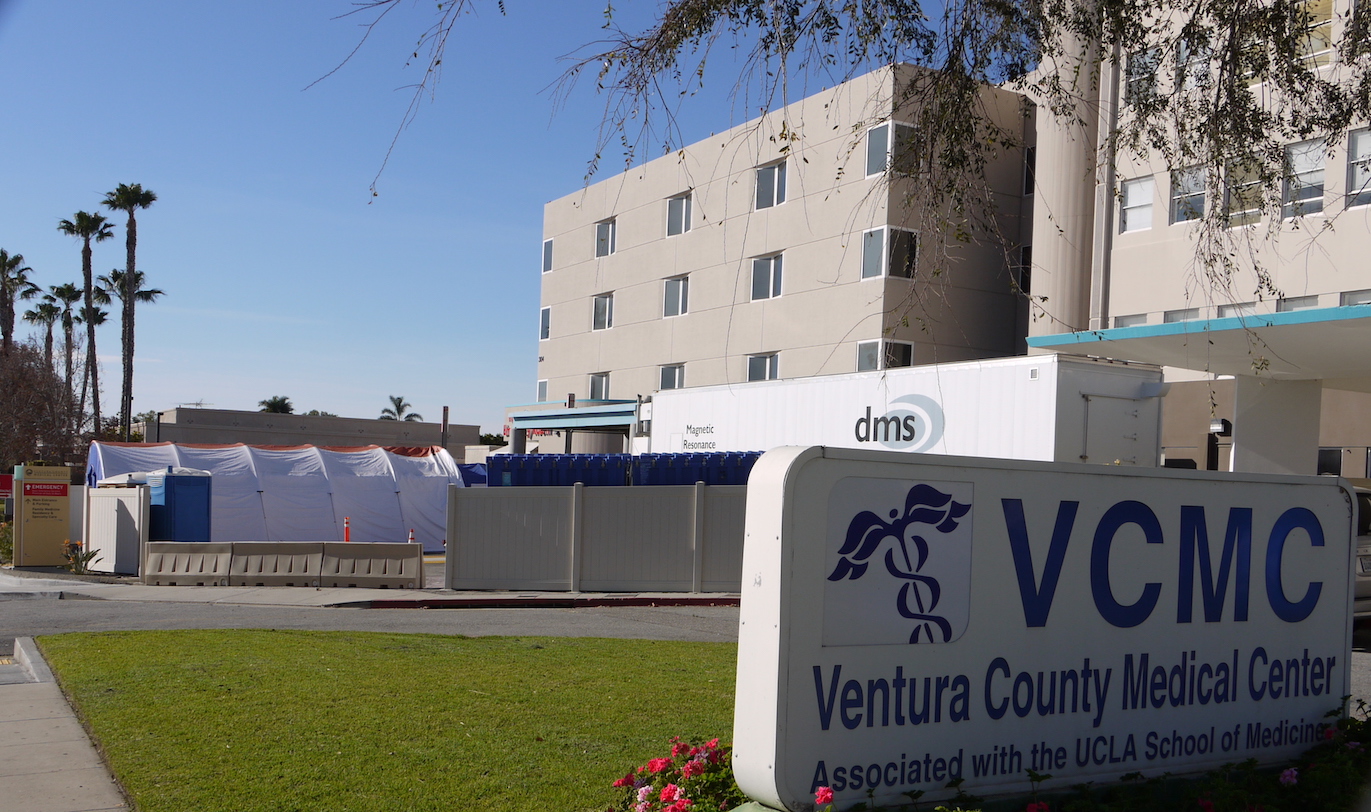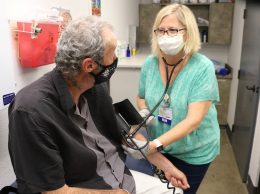Ventura County hospitals, clinics, health plan will pay $70.7M to settle claims of improper billing
IN THIS ARTICLE
- Health Care & Life Science Topic
- pacbiztimes Author
By pacbiztimes Thursday, August 18th, 2022

NOTE: This article was posted Aug. 18 and updated Aug. 26 with more details about the allegedly improper billing practices. The complete settlement agreements were also added and are viewable at the bottom of this article.
Three medical providers and one health coverage system in Ventura County have agreed to pay a total of $70.7 million to settle a whistleblower’s allegations that they broke federal and state laws by submitting false, overstated and duplicative Medi-Cal claims.
The United States Department of Justice, on behalf of the Inspector General of the Department of Health and Human Services, announced Aug. 18 that it had entered into the settlements with four public and private health care organizations: Dignity Health, the San Francisco-based nonprofit system that owns St. John’s hospitals in Camarillo and Oxnard; Clinicas del Camino Real, a Camarillo-based nonprofit health care provider for low-income patients; the county of Ventura, which owns and operates the Ventura County Medical Center public hospital and clinic network; and the Ventura County Medi-Cal Managed Care Commission, also known as Gold Coast Health Plan, a county-organized system that provides coverage to low-income patients under Medi-Cal, California’s version of the federal Medicaid system.
The settlements call for Gold Coast to pay $17.2 million to the federal government and the county of Ventura to pay $29 million. Dignity Health will pay $10.8 million to the federal government and $1.2 million to the state of California, and Clinicas will pay $11.25 million to the federal government and $1.2 million to the state.
All of the health care organizations deny the allegations, and the settlements do not include any admissions of liability. All four issued statements on Aug. 18 reiterating those denials.
In its statement, the county of Ventura said it as “already accounted for the financial impact from this settlement,” so the payments will have no budgetary impact, and it also emphasized that “services provided to patients were never questioned by either the state or federal government.”
Dr. Gagan Pawar, the CEO of Clinicas, said in her organization’s news release that Clinicas set aside the funds in question as soon as the investigation began, and cooperated fully with investigators.
“Although we do not believe Clinicas did anything wrong or inappropriate, and we do not believe it was an overpayment, we decided to settle the matter and return the alleged overpayments instead of engaging in costly and time-consuming litigation that would have cost taxpayers,” Pawar said.
The accusations against the Ventura County providers were first made under federal whistleblower laws by Atul Maithel, Gold Coast’s former controller, and Andre Galvan, Gold Coast’s former director of member services.
Under those laws, a private party can file an action on behalf of the United States and receive a portion of any recovery.
“We will pursue every health plan and provider that prioritizes profits over patients,” Acting U.S. Attorney Stephanie Christensen for the Central District of California said in the Justice Department’s news release. “The money at issue in this case was designated by the federal government to pay for services to treat Medicaid expansion patients, and it never should have been used to double-pay for services that already had been reimbursed or to pay for services that simply were never provided. Medicaid is a taxpayer-funded program that exists to help patients afford health care, and it never should be used to line the pockets of health care providers through fraudulent schemes.”
The Ventura County settlements appear to be the first ones in the nation involving allegedly improper payments made under the Medicaid expansion included in the Affordable Care Act. Under the ACA, beginning in January 2014, Medicaid systems in California and other states were expanded to cover previously uninsured adults under the age of 65. The federal government fully funded expanded Medi-Cal coverage in participating states for three years, in order to reach uninsured adults with incomes up to 133% of the federal poverty level.
The claims that the federal government maintains were false were made in 2014 and 2015, after that provision of the ACA took effect. During that period, federal investigators believe the Ventura County providers couldn’t identify the patients covered under the expansion or the services they received.
Pursuant to contracts with California’s Department of Health Care Services, if a California county organized health system did not spend at least 85% of the funds it received for the adult expansion population on “allowed medical expenses,” the health system was required to pay back to the state the difference between 85% and what it actually spent. The state would then repay that amount to the federal government.
The U.S. Department of Justice and the state of California allege that the Ventura County providers billed Medi-Cal for things that were not “allowed medical expenses”; billed for pre-determined amounts that did not reflect the fair market value of the services; and billed for services that duplicated those already provided. Those payments amount to “unlawful gifts of public funds” under California law, the federal and state governments allege.
In June 2015, according to the whistleblower’s complaint, Gold Coast Health Plan realized it was sitting on a chuck of money it would have to return to the California Department of Health Care Services in Sacramento. Instead, Gold Coast Health Plan distributed money to providers in Ventura County that treated its members.
Gold Coast Health Plan created contracts and paid its providers for additional services provided. Providers then produced an arbitrary list of additional services provided, sent it to Gold Coast and received checks, according to the whistleblower’s complaint.
The payments were pre-determined amounts that did not reflect the fair market value of any additional services provided, or the additional services were duplicative of services already required to be rendered, the settlement agreement said.
Some of the services included case management, telephone calls to patients, attending health fairs, hotel vouchers for homeless patients and emergency department services.
Emergency department services, for example, are health care services that the providers are required to provide. That means there was nothing “additional” about the services, and the providers were compensated twice for them.
Other services, like hotel vouchers and health fairs, essentially had no value, federal investigators concluded.
In addition to the payments, the settlements call for the county of Ventura and Gold Coast Health Plant to enter into five-year “corporate integrity agreements” with the U.S. Department of Health and Human Services.
Those agreements will require the county and the health plan to implement centralized risk assessment programs as part of their compliance programs and hire independent review organizations to complete annual reviews.
Gold Coast’s annual reviews will focus on its calculation and reporting of medical loss ratio data under Medi-Cal. Ventura County’s annual reviews will target hospital claims submitted to Medicare and Medicaid, including claims submitted to Medicaid managed care organizations.













